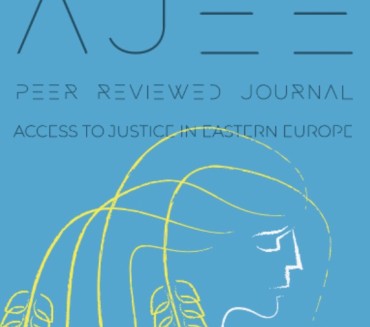Summary: 1. Introduction. – 2. Criticism Of Determinate Sentencing And The Non-Definition Of Education And Resocialisation In German Juvenile Criminal Law. – 3. The Indeterminate Sentence As A Solution Approach. – 4. Systems Theory And Individualisation Thesis Of Societies In The Legal Sphere, According To Luhmann, As A Theoretical Justification For The Reintroduction Of Indeterminate Sentencing. – 5. Discussion. – 6. Conclusions.
Background: In order to meet the demands of contemporary society, German juvenile criminal law needs a necessary reform. Consequently, this article proposes the reintroduction of indeterminate sentencing as an instrument for an overall social benefit to this need for reform and to counter the existing determinate sentencing system in place today. This specific sentencing system is understood to be the current guideline and norm currently implemented. According to Luhmann's systems theory, this contradicts the diversity of societies and the unique individuality of each member within them. In this perspective, individuals have the right to assert their rights and define their norms as long as they do not break the law or commit a criminal offence.
Methods: The discussion surrounding indeterminate sentencing reached its conclusion in the late 1990s, so a lack of scientific research exists. However, considering the societal transformation and development of the younger generation, the reintroduction of indeterminate sentencing seems opportune. Niklas Luhmann’s flexible systems theory from the 1980 s is well suited to support this reintroduction. Based on a relevant literature review and the development of tightening in German juvenile law, this article adopts an analytical approach supported by social, legal and political research. It provides a framework elucidating the reasons and the appropriate form for reintroduc ing indeterminate sentencing as a useful method to increase resocialis ation among the youth . This framework includes practical approaches such as combining education, professional training and social education, all aimed at implementing a rehabilitative approach within the juvenile justice system, similar to the original law that was abandoned.
Results and Conclusions: If this occurs, the indeterminate sentence allows for a more individualised approach, establishing an individual-oriented minimum sentence while maintaining a maximum duration. Thus, it aligns with Luhmann's flexible systems theory approach and proves relevant to the current circumstances of the youth generation. Such an approach offers greater benefits by emphasising the integration of education within the prison sentence for resocialisation, surpassing the capabilities of the current determinate sentencing in juvenile criminal law.
The actual recidivism rates average between 25% and 30% depending on the sentence. With an education-focused approach adjusted to the juvenile offender , coupled with a realistic future- oriented education system in and after the sentence, the process of resocialis ation stands a better chance of success . Although the research on this topic is in its early stages, this approach serves as an initial step towards instigating the necessary reform within juvenile law.

